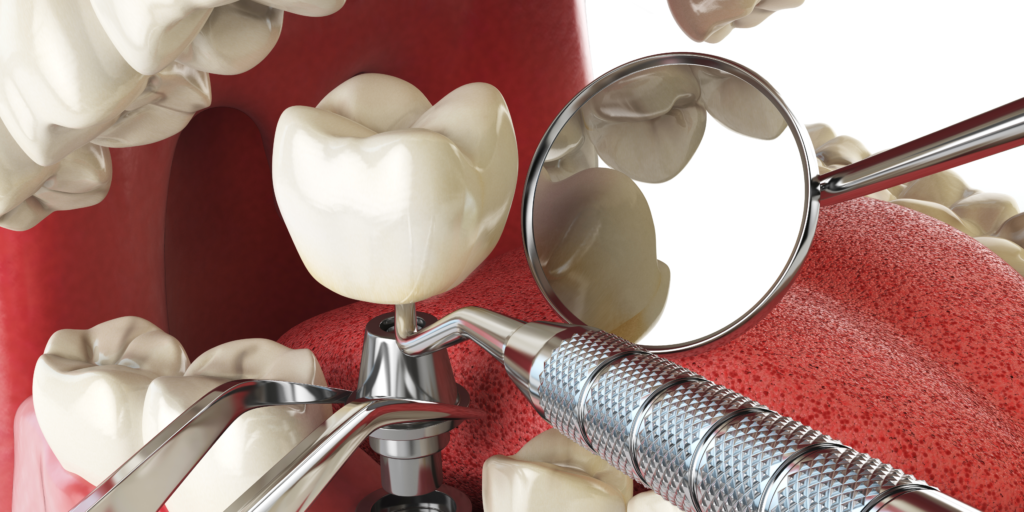Losing one or more teeth is a common dental issue that not only affects your smile’s aesthetics but also has significant implications for your overall oral health. Fortunately, modern dentistry provides two primary solutions for replacing missing teeth: dental bridges and dental implants. In this comprehensive article, where we’ll thoroughly explore the pros and cons of both options, we aim to help you make an informed decision on whether to choose dental implants in West Roxbury or a dental bridge for your specific needs. So, let’s dive into the world of Dental Bridge or Implants and understand which one might be the right choice for you.

Dental Bridge or Implant
Let’s start by examining dental bridges. A dental bridge is a prosthetic device designed to bridge the gap created by missing teeth. It consists of artificial teeth, known as pontics, which are anchored in place by dental crowns attached to adjacent natural teeth. Dental bridges have been a trusted method for restoring both the appearance and function of teeth for many years.
In contrast, dental implants represent a significant advancement in contemporary dentistry. This innovative approach involves surgically placing titanium posts into your jawbone to serve as artificial tooth roots. These posts provide a robust foundation onto which a prosthetic tooth or crown can be attached. Dental implants offer a long-lasting, natural-looking solution for missing teeth, often considered the gold standard in tooth replacement.
A Comprehensive Analysis
When considering dental bridges, it’s essential to weigh the pros and cons. On the positive side, dental bridges are often more cost-effective upfront compared to dental implants. They also entail a quicker procedure, meaning you can enjoy a restored smile sooner. Additionally, the process for getting a dental bridge is less invasive, making it appealing to individuals concerned about surgical procedures.
However, dental bridges come with their drawbacks. They are considered a temporary solution, requiring replacement every 10-15 years, while dental implants have the potential to last a lifetime with proper care. There’s also a risk to adjacent teeth, as preparing them for crowns can weaken them over time, potentially leading to dental issues in the future.
On the other hand, dental implants offer several significant advantages. They provide exceptional longevity, potentially lasting a lifetime if properly maintained. Implants also help preserve your jawbone, preventing the bone loss that can occur with bridges over time, thus maintaining your facial structure and overall oral health. Moreover, dental implants closely mimic the look and function of natural teeth, providing a seamless and aesthetically pleasing smile.
However, there are cons to consider as well. Dental implants tend to have a higher initial cost than bridges, though their durability and long-term benefits often justify the investment. The implant placement process also involves surgery and a more extended healing period, which may not be suitable for everyone.
Choosing the Right Solution
The decision between a dental bridge and dental implants is complex and should be based on your individual circumstances and preferences. Factors to consider include your budget, oral health, aesthetic concerns, and your desire for a long-lasting tooth replacement.
In conclusion, both dental bridges and dental implants have their merits, and the choice between them ultimately depends on your unique needs and circumstances. Consultation with a dental professional is essential to determine the best option for you. Whether you decide to go for dental implants in West Roxbury or a dental bridge, taking action to replace missing teeth is a significant step toward regaining your confidence and preserving your oral health.



